A practical guide to Spring Festival: the 7 trials of the Lunar New Year
2017-01-23 22:03 GMT+8

Editor
Li Yezi
What is Spring Festival? If you thought it was a chance to enjoy some peace and quiet, think again: it is actually a battle that requires lengthy preparations, generous funds and a hard skin, all to make sure you and your family can enjoy a festive night where nothing goes wrong!
Step 1: “扫房子” Clean the house from top to bottom, add some decorations
There is a folk song about how the Chinese prepare for Spring Festival; on the sixth day before the festival every Chinese family should clean their house.
No matter how tired you are from work, no matter how long you have to travel to get home, the first thing mom and dad will do right after hugging you is to hand you a broom: “Do some cleaning! I’m busy!” mom will instruct. And she doesn’t just mean a quick sweep. Clothes, bed sheets and kitchenware will have be taken out of cupboards, refolded, rearranged, and put back in order again. Everything will need to be dusted, cleaned and shined – from floors to windows. And once you’re finished, you’ll need to hang up traditional decorations for the season, like New Year calligraphy scrolls and red paper cuts. They might call this the Spring Festival “holiday”, but relaxing is not the word!
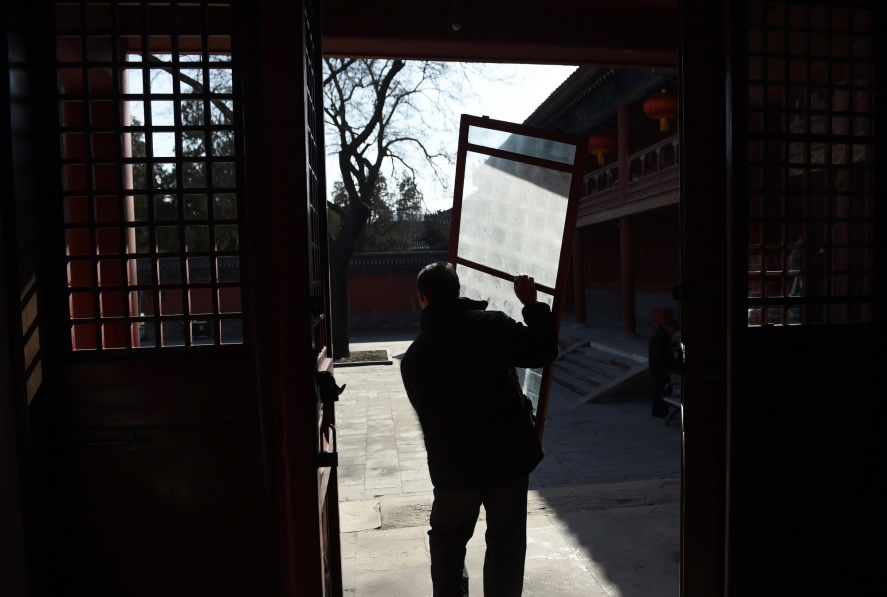
Dusting is a custom before Spring Festival. A man working in a temple cleans a window pane ahead of Spring Festival. /CFP Photo
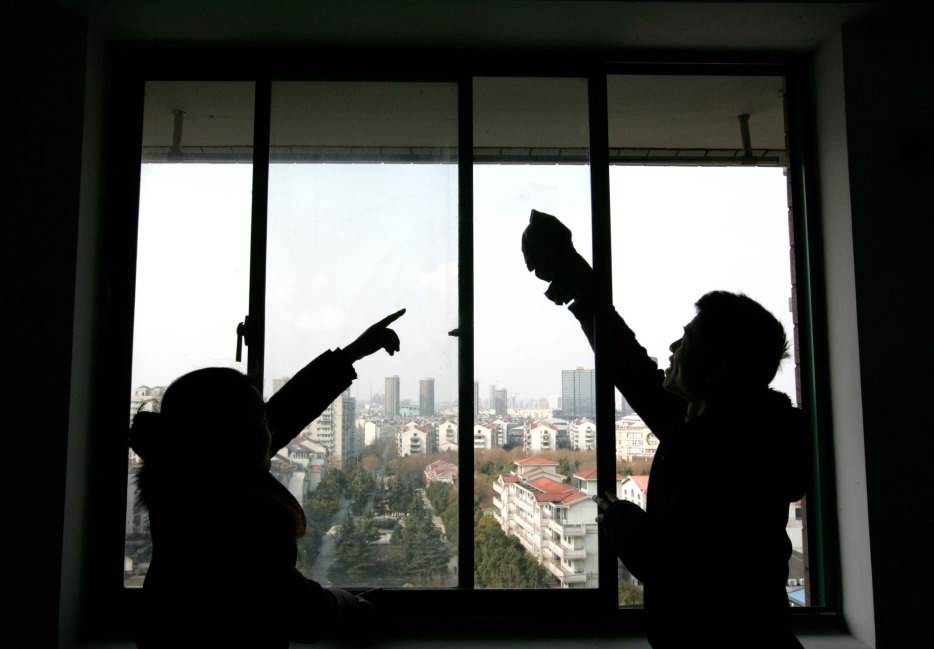
A couple in Hangzhou clean their house. /CFP Photo
Step 2: “办年货” Spend your year-end bonus on snacks you will never get to eat
Everything about this traditional festival is meant to bring families closer, which means all your relatives, from your eldest aunt to the youngest baby, will visit your house before, during and after Spring Festival.
Traditionally, people spend a lot of money buying food and home supplies ahead of Spring Festival. In former times, this was the one time in the year when people with limited income would allow themselves a little bit of extravagance: either a new suit, a trendy hat or some sweets.
Nowadays, since it costs much less to buy festive treats, more is spent on snacks and nuts to accommodate visitors, who will munch away while chatting, leaving you not a single piece by the time they return home. And then you’ll have to start tidying again, to clean up the mess they’ve left!
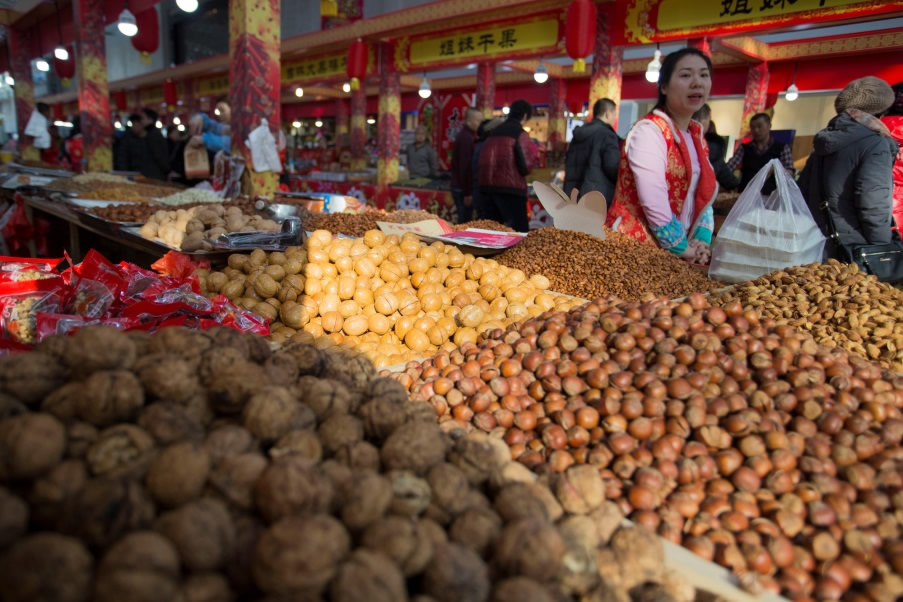
Snacks and nuts are extremely popular at this time of year. /CFP Photo
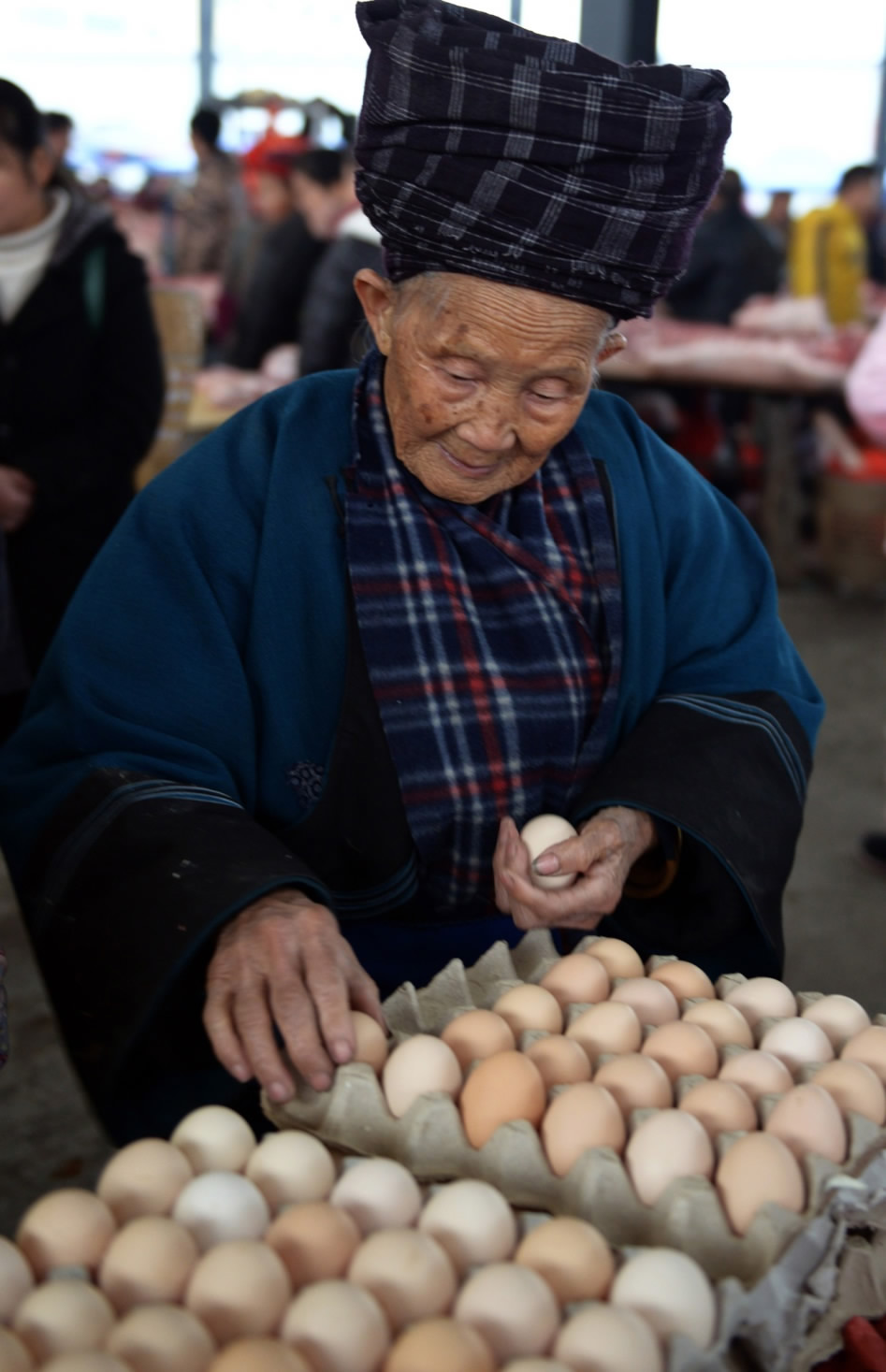
A Hmong granny buys eggs for the Spring Festival Eve feast. /CFP Photo
Step 3: “散红包” Give your hard-earned money to young relatives and get nothing in return
Red packets – or “hong bao” - are usually handed down by older relatives to younger ones: from parents to children, from aunts and uncles to nieces and nephews, from grandparents to grandchildren. But once you have a job and start earning your own money, it becomes your task too to dole out red packets.
This is a tradition that has been passed down through generations, as the money is meant as a blessing. The Chinese call this “Ya Sui” (压岁) money, which means lucky money but also sounds like 压祟, meaning to put down evil spirits, giving these red packets an extra symbolic meaning.
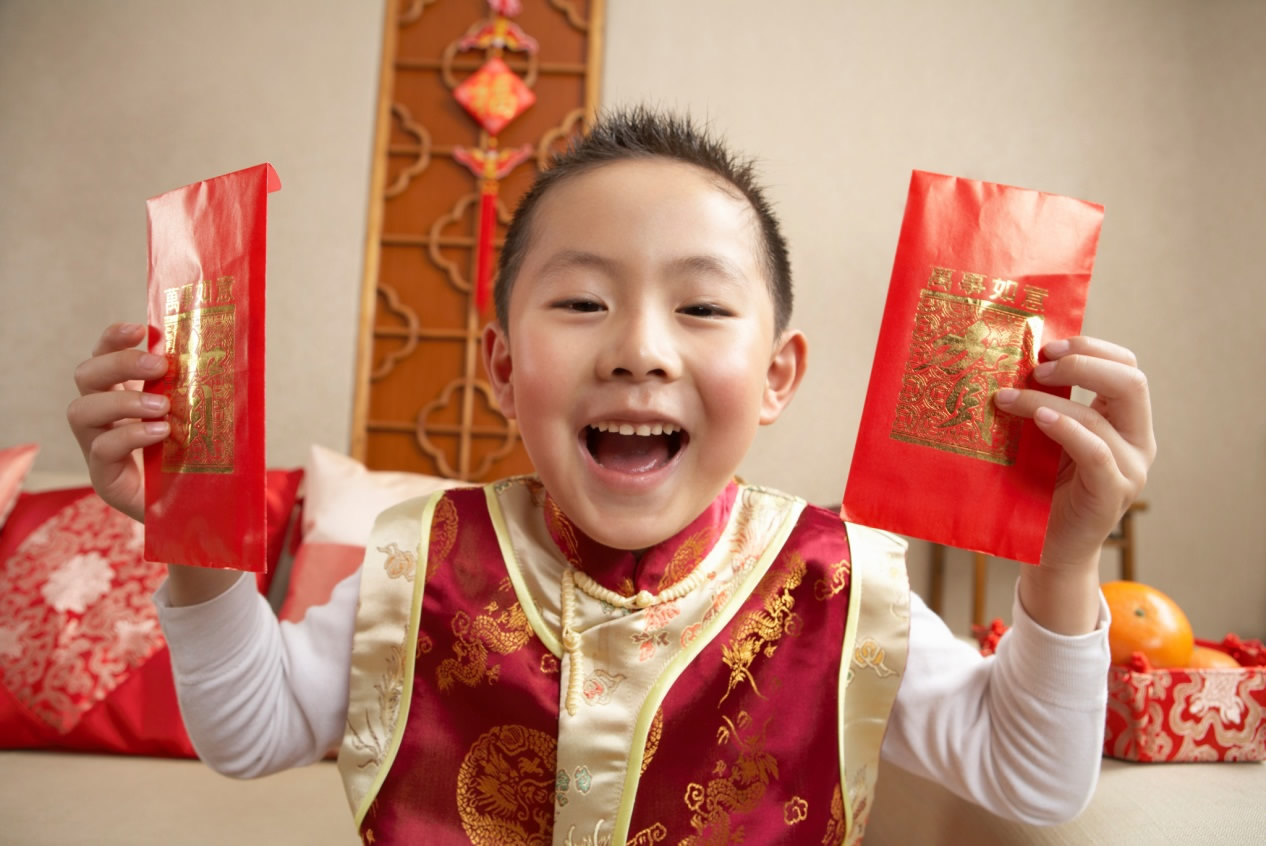
As a child, you might make a fortune collecting red packets. But be careful! Mom might also take them away, claiming she’ll put them in the bank for you… /CFP Photo
How much to give is always a tricky issue. Today, people can send red packets using a WeChat app. This might lessen the pressures of deciding how much is an acceptable amount to give somebody as you can just send a virtual red packet in a group chat, and luck will dictate how much each member receives from the pool.
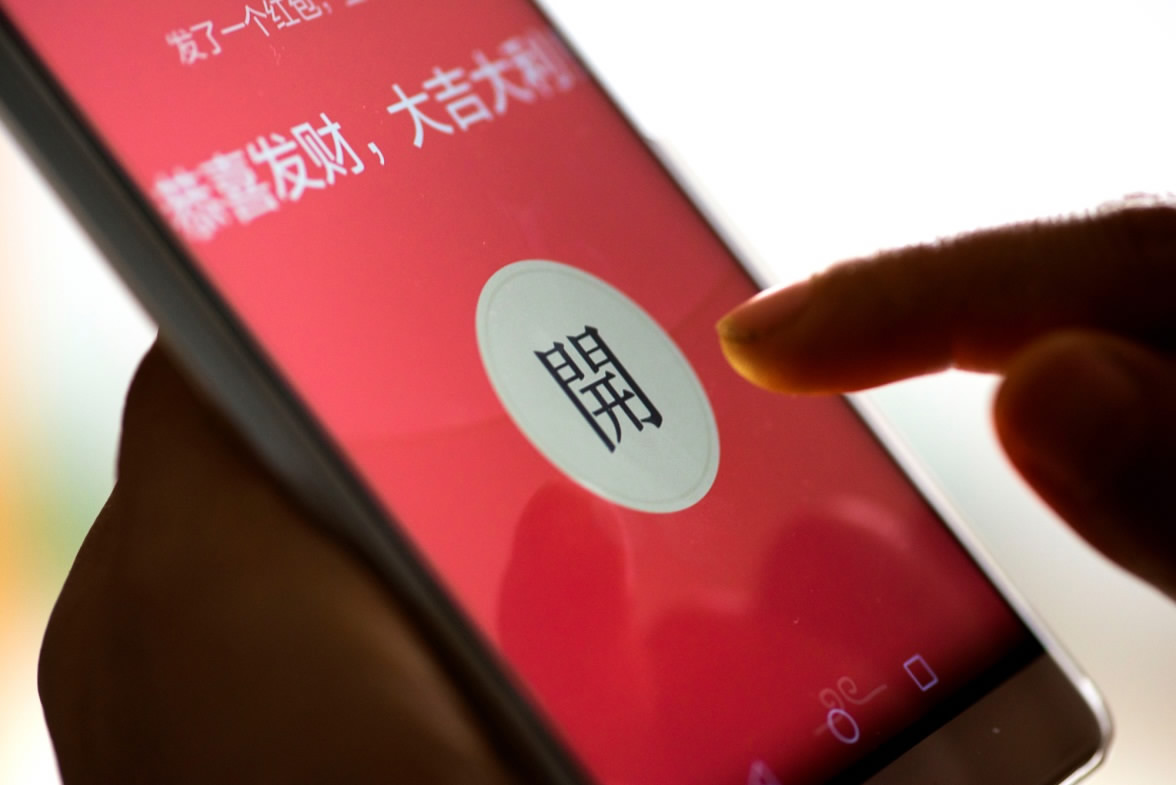
WeChat red packets allow more fun and unpredictability among young Chinese. /CFP Photo
Step 4: “包饺子” Making dumplings and other kitchen work
On the last day of the Chinese lunar calendar, your kitchen will be a mess. Since all delicacies must be finished before midnight and your family must make “jiaozi” (dumplings) together, there will be quite a crowd in the kitchen, which is probably no more than 10 square meters in size.
Jiaozi can have a meat or vegetable stuffing. But to make them more festive, some will insert a coin in the filling for good fortune in the New Year, or a candy, nut or some other softer treat to avoid cracking a tooth on it.
More likely than not, you will also be asked to cook a specialty, but not without your relatives constantly dishing out advice and instructions!
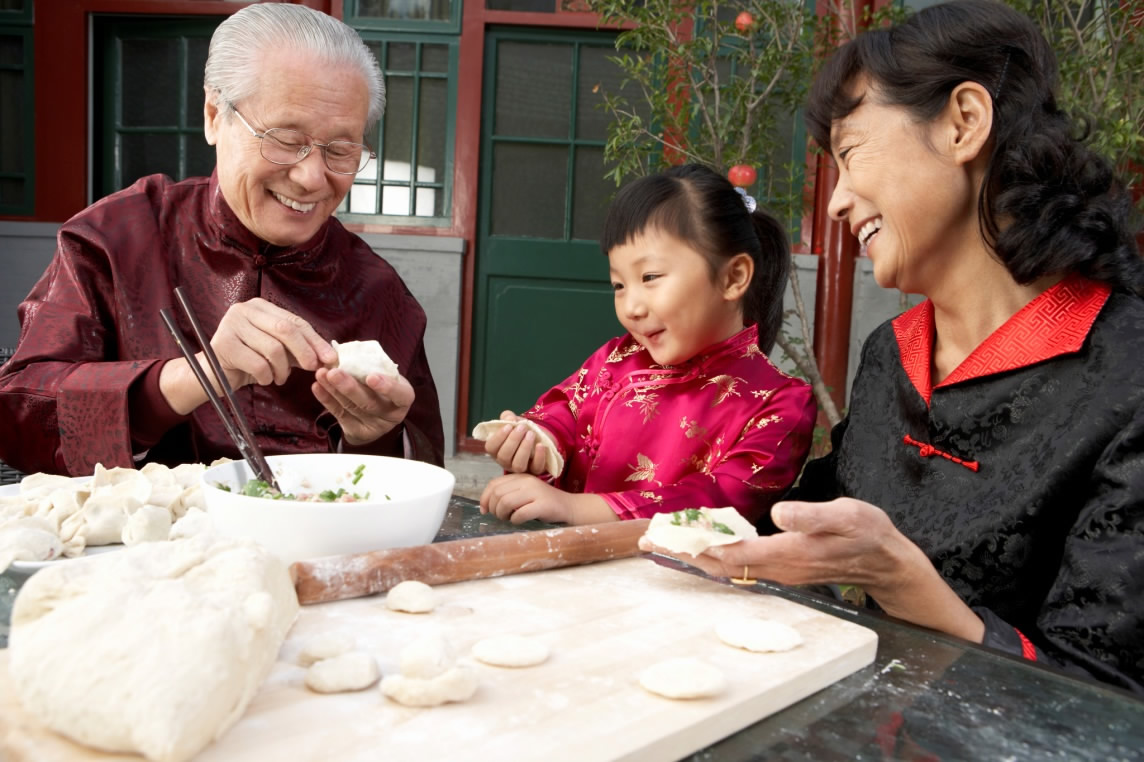
Grandparents teach their granddaughter how to make jiaozi. /CFP Photo
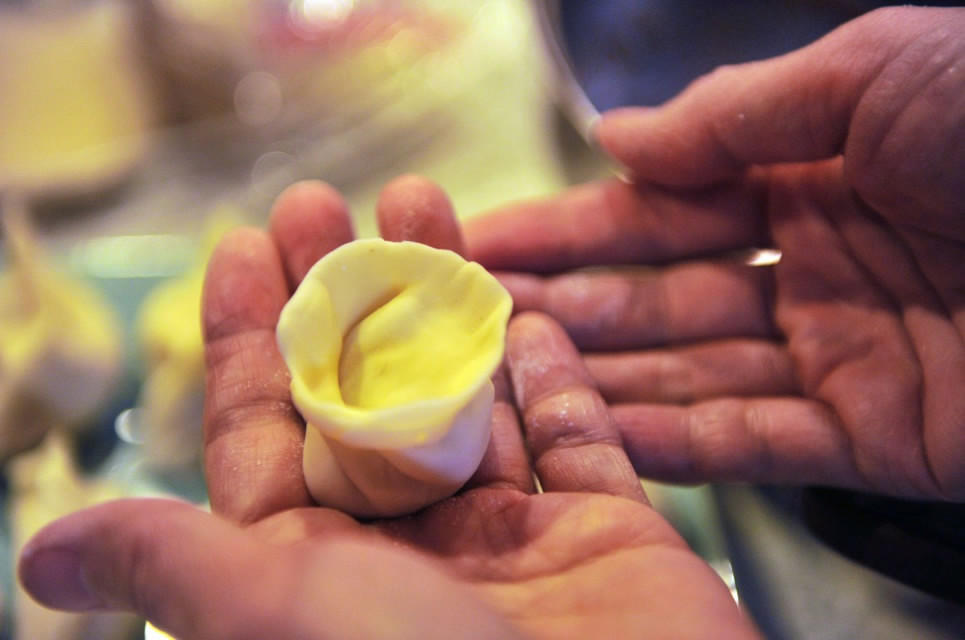
Each family has its own jiaozi style. /CFP Photo
Step 5: “打麻将” Face hardened Mahjong and poker players … and lose
When family and friends visit, you may need to bring out some board games and cards as entertainment… and you will be expected to lose to your guests.
One game almost all Chinese enjoy is Mahjong. Four players start with 13 tiles each and take turns drawing from the pile. The aim is to collect several triples – either three of a kind or three sequential tiles – plus one pair of tiles. Across China, people play according to all kinds of different rules. On your first try, it will seem devilishly hard but your parents will inevitably tell you to just sit down “and you will get the hang of it”… which you probably will not. But maybe this winning combination formula will help: n x AAA + m x ABC + DD. Do you get it?

Netizen “Mrbb” provides a formula to win a Mahjong game. /Weibo Photo
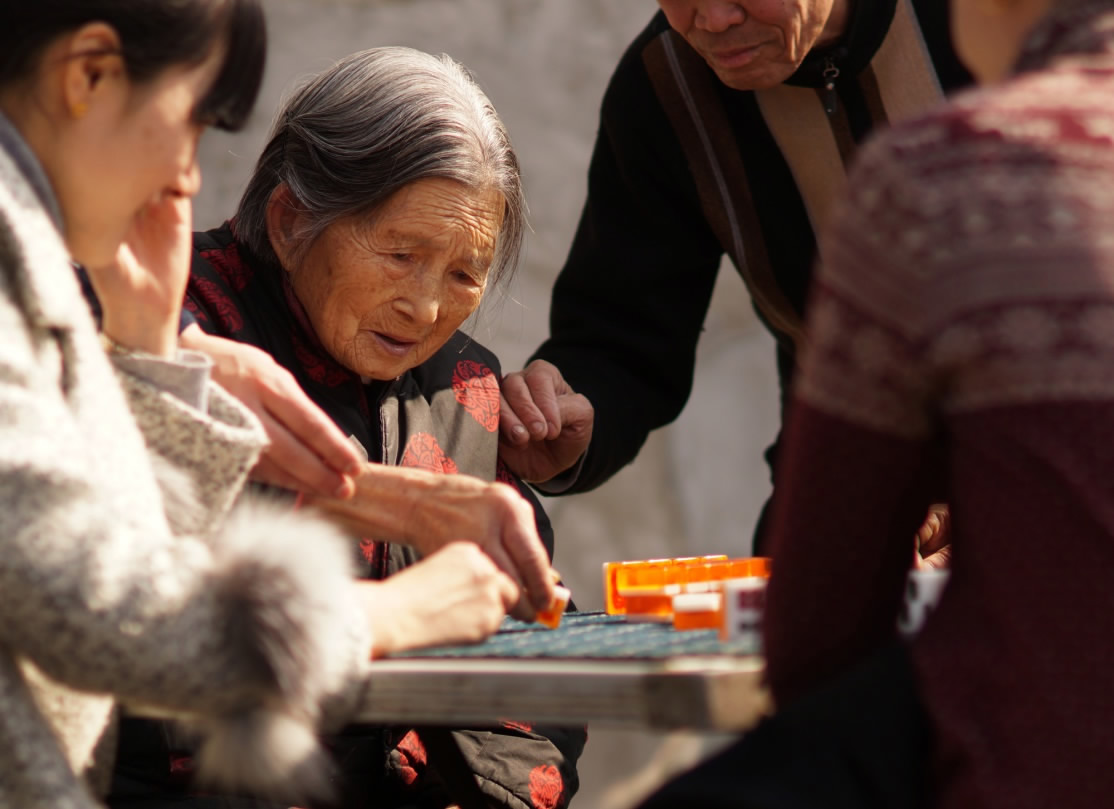
Mahjong is a popular game, especially among older Chinese. /CFP Photo
Step 6: “新闻发布会” Prepare for the Chinese Inquisition: Do you have a girlfriend/boyfriend? When are you bringing her/him home?
There is one scenario you simply can’t avoid during Spring Festival: the multiple rounds of questioning by every member of your extended family. No matter how satisfied you may be with your life, they won’t be. And they will hound you for as long as they can on whether you have a boyfriend or girlfriend, when you are getting married, when you are going to have a child (or second child), and whether or not you should buy a house.
Of course, some will ask because they genuinely care about you. But with the age gap comes different expectations. It is an art to avoid questions you are not comfortable with. But it can also result in some comedy scenes:
Mother: … after all you’ll need to get married and have a child!
Child: Why, ma?
Mother: Because you’ll need your children to wait on you and do what you need them to do!
Child: Do I do what you tell me to do?
Mother: …no.
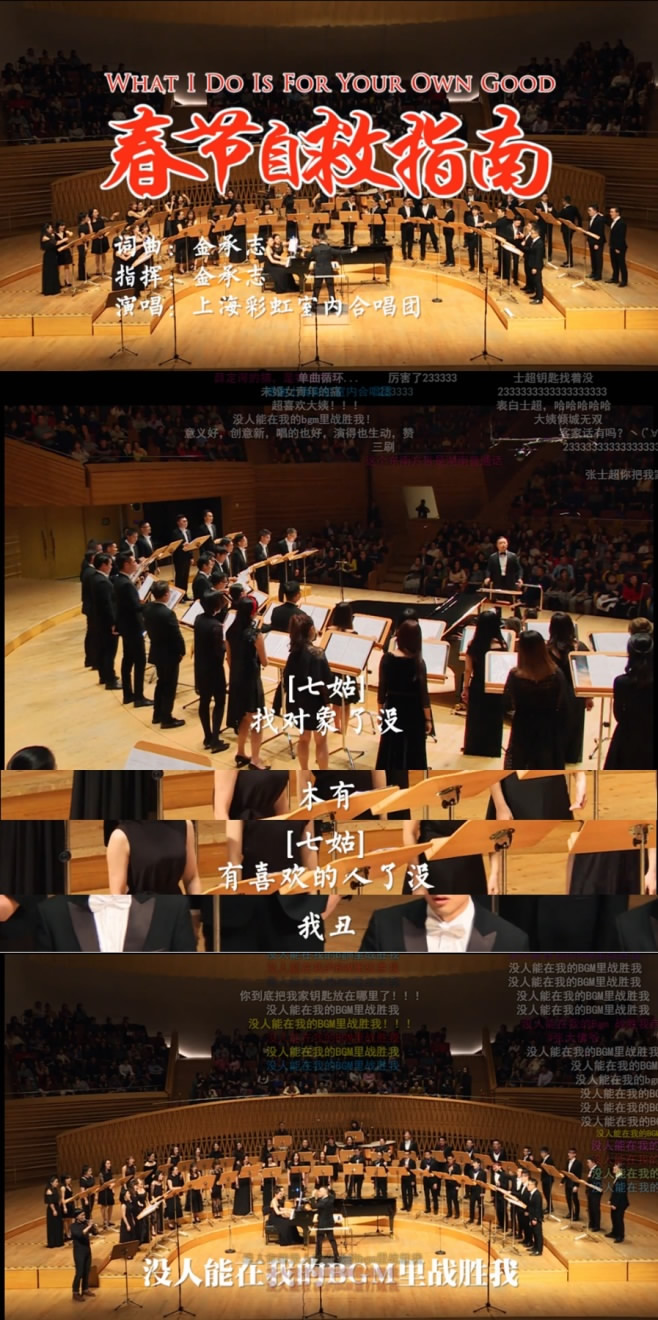
The Rainbow Chamber Singers made their name composing and performing songs with humorous lyrics derived from Chinese youngsters’ current living situations. Their latest release is a vivid Spring Festival warm-up that depicts how young men and women face questions and concerns from their family. /Screenshots from “Rainbow Chamber Singers” video
Step 7“点炮仗” Go deaf on Chinese firecrackers
The most fun part of Spring Festival – except maybe for your ears – is the firecrackers. Unlike New Year fireworks displays in Western countries, Chinese Spring Festival firecrackers are supposed to be as loud and bright as possible to scare away the bad spirits. The old saying in Chinese is that “Nian” – which means “year” in Mandarin - was a nasty monster that would attack people during the Lunar New Year. So to drive it away, people used bamboo stems filled with gunpowder to make small explosions.

A village in northeastern China starts the festive firework show ahead of Spring Festival on January 14, 2017. /CFP Photo
This custom has been kept for centuries, although it now also triggers safety and environmental protection concerns. Another hot debate is whether it is fair to make street cleaners work all night in the cold to clear up the mess left by exploded red firecrackers, just for a few minutes of noisy fun. Some cities and regions have partially banned them, but the debate continues.
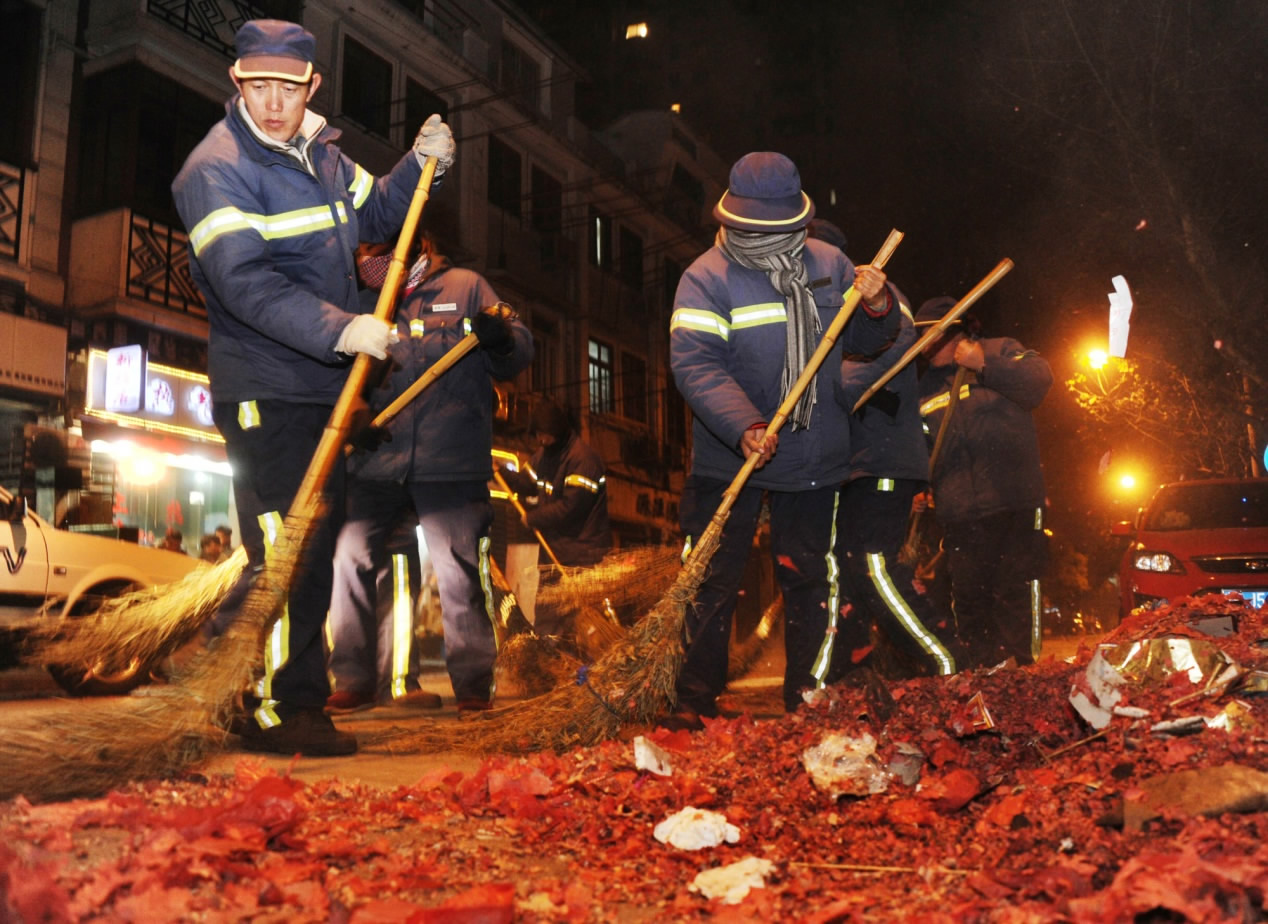
Street cleaners work overnight during Spring Festival to clear up exploded firecrackers that litter the streets. /CFP Photo
Many say people nowadays have lost their sense of tradition. Customs and rituals have indeed changed with time. But the significance of family reunions and the celebrations that bring us together every year are sure to stick around for at least a little longer.
Copyright © 2017
